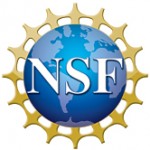Every student dreams of being published before they graduate and demonstrating to the world their achievements and skills, but few students have the opportunity. This Fall semester, however, both Jennifer Simon and Janelle Wallace graduate student’s in the PACE MS in Educational Technology program where selected to have their Assistive Technology invention placed into a new book, Design and Technologies for Healthy Aging (DATHA) as part of a coalition initiative housed at the Center for Assistive Technologies and Environmental Access (CATEA). The DATHA is currently under development by Claudia Rébola, Assistant Professor, Industrial Design, Georgia Institute of Technology. At Pace University as part of the TS642 Computer Hardware, Troubleshooting, and Maintenance class taught by Dr. Jean F. Coppola, Simon and Wallace developed adaptive iPad styles for the hand/arms and head that they call “Smile Gear.”
 Every student dreams of being published before they graduate and demonstrating to the world their achievements and skills, but few students have the opportunity. This Fall semester, however, both Jennifer Simon and Janelle Wallace graduate student’s in the PACE MS in Educational Technology program were selected to have their Assistive Technology invention placed into a new book, Design and Technologies for Healthy Aging (DATHA) as part of a coalition initiative housed at the Center for Assistive Technologies and Environmental Access (CATEA). The DATHA is currently under development by Claudia Rébola, Assistant Professor, Industrial Design, Georgia Institute of Technology. At Pace University as part of the TS642 Computer Hardware, Troubleshooting, and Maintenance class taught by Dr. Jean F. Coppola, Simon and Wallace developed adaptive iPad styles for the hand/arms and head that they call “Smile Gear.”
Every student dreams of being published before they graduate and demonstrating to the world their achievements and skills, but few students have the opportunity. This Fall semester, however, both Jennifer Simon and Janelle Wallace graduate student’s in the PACE MS in Educational Technology program were selected to have their Assistive Technology invention placed into a new book, Design and Technologies for Healthy Aging (DATHA) as part of a coalition initiative housed at the Center for Assistive Technologies and Environmental Access (CATEA). The DATHA is currently under development by Claudia Rébola, Assistant Professor, Industrial Design, Georgia Institute of Technology. At Pace University as part of the TS642 Computer Hardware, Troubleshooting, and Maintenance class taught by Dr. Jean F. Coppola, Simon and Wallace developed adaptive iPad styles for the hand/arms and head that they call “Smile Gear.”
Product Description
We discovered that in certain cases of cerebral palsy and other physical disabilities, patients are not able to use e-Devices to their full capacity because they are physically restricted. To help solve this problem and also bring a smile to people with disabilities, we have created two touchscreen devices that are cool, colorful, functional, and simple to create. These friendly self-made adaptive tools are a refreshing change to the cold and uncomfortable metal/plastic pointers that are the norm for alternative tools. The tools we have developed are inexpensive to make, flexible for different needs and body sizes, and lend themselves to people with disabilities who have difficulty using the iPad or other e-Devices. These cool & colorful styluses are able to wrap around hands, arms, or the head to point and select apps on touch-screen devices. One special and distinctive feature about our tools is that they are available in different colors and textures even with fun accessories like eyeballs and antenna which transform these styluses into friendly creatures that not only aid those with disabilities, but that also boost their confidence by putting a smile on their faces and making them feel “cool” about using it.
For more information visit their website
 Four Seidenberg students are finalists in the Lubin Mobile App Contest.
Four Seidenberg students are finalists in the Lubin Mobile App Contest. Four Seidenberg students are finalists in the Lubin Mobile App Contest.
Four Seidenberg students are finalists in the Lubin Mobile App Contest.




